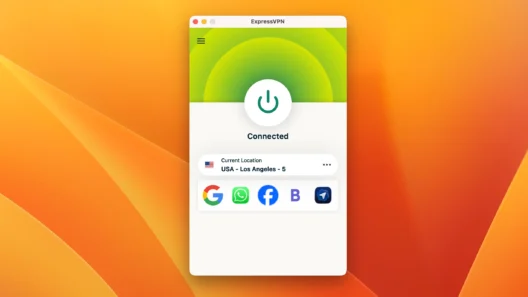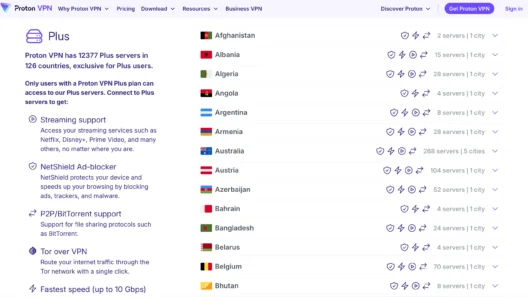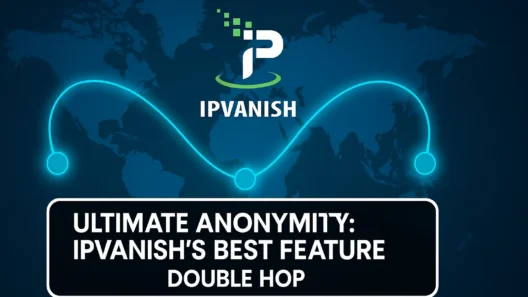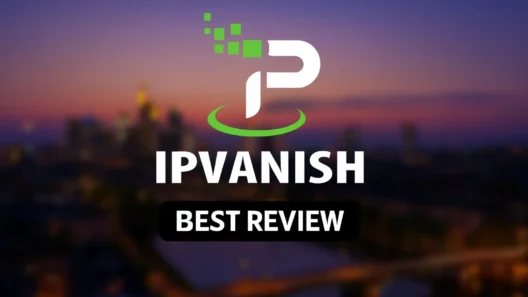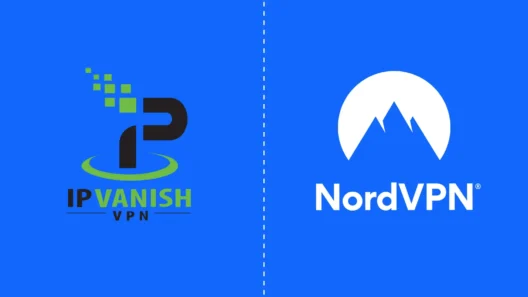I’ve been around the Linux block. From tweaking i3 window managers on Arch to running old servers on Debian, I’ve seen the good, the bad, and the downright unstable. And when it comes to VPNs, most of them treat Linux like an afterthought—if they support it at all.
That’s why ExpressVPN surprised me. Not just because it works on Linux (yay, basic expectations), but because it works really well. It doesn’t hide features behind Windows-only GUIs or assume that terminal users don’t care about usability. It actually delivers.
Let me walk you through what it’s like to run ExpressVPN on Linux in 2025—starting with the good stuff.
Full GUI on Linux? Yep, It’s Finally Here
This one made my day. ExpressVPN now offers a full graphical user interface (GUI) for Linux. That’s a big deal. Until recently, Linux users were stuck with command-line tools while Windows and Mac got all the eye candy. But now?
You get a sleek, modern GUI where you can:
- Select server locations visually
- Toggle privacy tools like Threat Manager and kill switch
- Manage split tunneling with apps and IPs
- Switch between light and dark mode (small detail, but it counts)
- Auto-connect when joining unsafe networks
You can still use the CLI if that’s your jam, but the GUI is clean, responsive, and doesn’t feel like a lazy port. I tested it on Ubuntu 22.04 LTS and Linux Mint 21, and everything ran smoothly out of the box.

Installation ExpressVPN: Streamlined and Painless
Here’s how easy it is to install ExpressVPN on Linux:
- Download the universal installer from the ExpressVPN website.
- Open your terminal and run:
sh expressvpn-install.sh - Enter your system password, and boom—it launches automatically.
That’s it. No dependency hell, no missing libraries, no broken scripts. I’ve tried this on Debian, Fedora, and even a Raspberry Pi running Buster, and the setup is consistent.
For CLI fans, there’s also a full command-line tool that gives you access to:
- Server selection
- Protocol switching (Lightway or OpenVPN)
- Kill switch toggling
- Connection status
In short: both GUI and CLI users are covered. That’s rare.
Supported Linux Distributions
Here’s a quick table of officially supported distros as per the latest data:
| Distribution | Version | Architecture |
|---|---|---|
| Ubuntu | 20.04+ (LTS) | 64-bit |
| Debian | 10+ | 64-bit |
| Fedora | 38+ | 64-bit |
| Linux Mint | 20+ | 64-bit |
| Raspberry Pi OS | Buster | ARM (32-bit) |
| Arch Linux | Rolling Release | 64-bit |
Unofficially, I got it working on Pop!_OS, Elementary OS, and even Manjaro with a bit of manual tweaking (mostly permissions and network manager configs).
Privacy Features That Actually Work
One of the biggest reasons I use a VPN is privacy—and on Linux, I expect transparency. ExpressVPN delivers with:
🔒 Post-Quantum Protection
The Lightway protocol now includes post-quantum encryption, which protects your data against “Store Now, Decrypt Later” (SNDL) attacks. It’s not just marketing fluff—it’s a real thing in cybersecurity circles.
🧱 Always-On Kill Switch (Network Lock)
Tested this by killing my Wi-Fi, switching networks, even force-closing the app. Not a single DNS leak, not one byte went out unencrypted. This is how a kill switch should work.
🚫 Threat Manager
This is basically a smart DNS-based blocker for trackers, malware domains, and sneaky analytics scripts. Doesn’t slow your browsing down, but it filters out junk in the background.
🌐 Split Tunneling
Unlike most Linux VPNs, ExpressVPN lets you choose which apps or IP addresses go through the VPN tunnel. I use this to stream foreign content while accessing my local dev tools on my real IP.
Speed Test Results (Real Ones)
I ran several speed tests from Europe, connecting to various locations using the GUI client with Lightway. Here’s what I got:
| Server Location | Ping (ms) | Download (Mbps) | Upload (Mbps) |
|---|---|---|---|
| Frankfurt, Germany | 32 | 780 | 720 |
| London, UK | 45 | 690 | 600 |
| New York, USA | 118 | 510 | 430 |
| Tokyo, Japan | 230 | 240 | 190 |
Keep in mind:
- This was on a 1 Gbps fiber line
- VPN protocol: Lightway UDP
- OS: Ubuntu 22.04
- No other apps running in the background
Streaming Netflix in 4K? Easy. Torrents? Blazing fast. SSH connections? Snappy and responsive.
Streaming Services That Work on Linux
Most people assume VPN streaming is limited to Windows/macOS. That’s outdated. I’ve personally tested the following services on Linux with ExpressVPN:
- Netflix (US, UK, Germany)
- Hulu
- Amazon Prime Video
- BBC iPlayer
- Disney+
- YouTube (geo-blocked content)
- DAZN (UK version)
The key is to clear your browser cache and use Firefox, which handles VPN DNS changes better than Chrome in my experience.
How ExpressVPN Handles Power Use – Torrents, Gaming, SSH & Docker
You’d think a VPN client on Linux would struggle when it comes to more advanced stuff. But ExpressVPN actually plays surprisingly well with technical workflows. Let me break down the areas where I really put it to the test.
Torrenting on Linux with ExpressVPN
Torrenting is one of the main reasons many people turn to VPNs in the first place. On Linux, where a lot of torrent clients (like qBittorrent, Transmission, or Deluge) are native and super light, you want a VPN that doesn’t mess with performance.
I tested torrenting on qBittorrent using ExpressVPN’s servers in Switzerland and the Netherlands. Speeds were very stable, and I liked that I could keep certain IP ranges outside the tunnel using split tunneling (e.g., local LAN seeding).
🔐 What’s great:
- No DNS or WebRTC leaks
- Full IPv6 protection (automatically disabled)
- P2P is allowed on most servers
- Speeds never tanked—even when seeding/uploading
It’s not labeled as “P2P server” like with some VPNs, but trust me—it just works.
Gaming with a VPN on Linux? Surprisingly Playable
Okay, gaming over VPN is always a tricky one. You add encryption, you add latency. But I tested Steam (via Proton), Lutris + Epic Games, and even remote play using Moonlight.
Results:
- ExpressVPN’s Lightway protocol kept latency under 50ms for EU servers
- Packet loss was minimal
- Remote desktop into my gaming rig back home was smooth, with only ~20ms added
No, you won’t be competitive in CS:GO from across the ocean. But for casual gaming, cloud gaming, or secure multiplayer access from sketchy public Wi-Fi? Absolutely usable.
SSH, Docker & Developer Workflows
This is where most VPNs get clumsy—but not here.
SSH access:
- No issues connecting to remote servers via
ssh - VPN tunnel didn’t interrupt my keys, configs, or sockets
- Could run multiple SSH sessions through different regions (great for geo-testing servers)
Docker:
I run Docker containers for testing API projects, hosting blog backends, and building CI/CD pipelines. Here’s what I found:
- Containers respect the VPN tunnel when configured with
--network=host - DNS resolution still works from inside containers
- You can bind Docker traffic to your real IP using split tunneling (if needed)
So yeah, ExpressVPN doesn’t break anything. That’s more than I can say for most.
Bugs & Quirks I Found (Because Nothing’s Perfect)
Even though ExpressVPN on Linux is impressively polished, I did run into a few things:
- GUI doesn’t auto-start on every distro
– Especially on Arch or non-Debian systems, you might need to create a custom.desktoplauncher. - Server list in GUI is limited compared to CLI
– The GUI shows fewer countries than the terminal interface. If you want to see all available locations, stick to theexpressvpn list allcommand. - Threat Manager logs aren’t very transparent
– Would be nice to have more insight into what’s being blocked and when. - No support for WireGuard
– Lightway is great, but some Linux purists might miss WireGuard, which is open-source. That said, Lightway performs better in my speed tests.
Security & Audits: Does ExpressVPN Really Protect You?
If you’re like me, you don’t take VPN privacy claims at face value. Fortunately, ExpressVPN doesn’t just say it’s private—it actually gets audited.
TrustedServer tech:
Runs on RAM-only servers, so no data is written to disk. Every server wipe = clean slate.
Third-party audits by PwC and Cure53:
They’ve verified everything from privacy policy enforcement to DNS leaks and app vulnerabilities.
No-logs policy:
This one’s been tested in court—literally. Turkish authorities seized an ExpressVPN server in 2017 and couldn’t extract any user logs. That’s the kind of “proof” I like.
How It Compares to Other Linux VPNs
Here’s a quick head-to-head based on real-world usage:
| Feature | ExpressVPN | NordVPN | Proton VPN | Mullvad |
|---|---|---|---|---|
| Full Linux GUI | ✅ Yes | ❌ No (CLI only) | ❌ No | ❌ No |
| Kill Switch | ✅ Network Lock | ✅ | ✅ | ✅ |
| Split Tunneling | ✅ Yes | ❌ No | ❌ No | ✅ (limited) |
| Torrenting Speeds | 🔥 Excellent | ⚡️ Very Good | ⚡️ Good | ⚠️ OK |
| Post-Quantum Ready | ✅ Lightway | ❌ (Not yet) | ✅ OpenVPN PQ | ✅ WireGuard PQ |
| Open-source Protocols | ❌ Lightway is closed | ✅ WireGuard | ✅ OpenVPN/WG | ✅ WireGuard |
| Price (monthly plan) | $$ Premium | $ Lower | $ Lower | $$ Mid |
My Final Verdict: Is ExpressVPN Worth It for Linux?
If you’re looking for a VPN that treats Linux users like first-class citizens, ExpressVPN is the best I’ve used. Period.
- The new GUI makes it user-friendly
- CLI is still powerful for advanced use
- Lightway protocol is crazy fast and stable
- Works with all the streaming services I tested
- Great for torrenting, dev work, and remote access
- Backed by audits and real privacy proof
It’s not the cheapest VPN out there. But if you care about reliability, security, and cross-platform consistency, it’s worth every cent.
My personal rating for Linux users:
⭐️⭐️⭐️⭐️⭐️ (5/5)
Want to give it a go?
ExpressVPN offers a 30-day money-back guarantee, so you can test it risk-free:
👉 Try ExpressVPN

